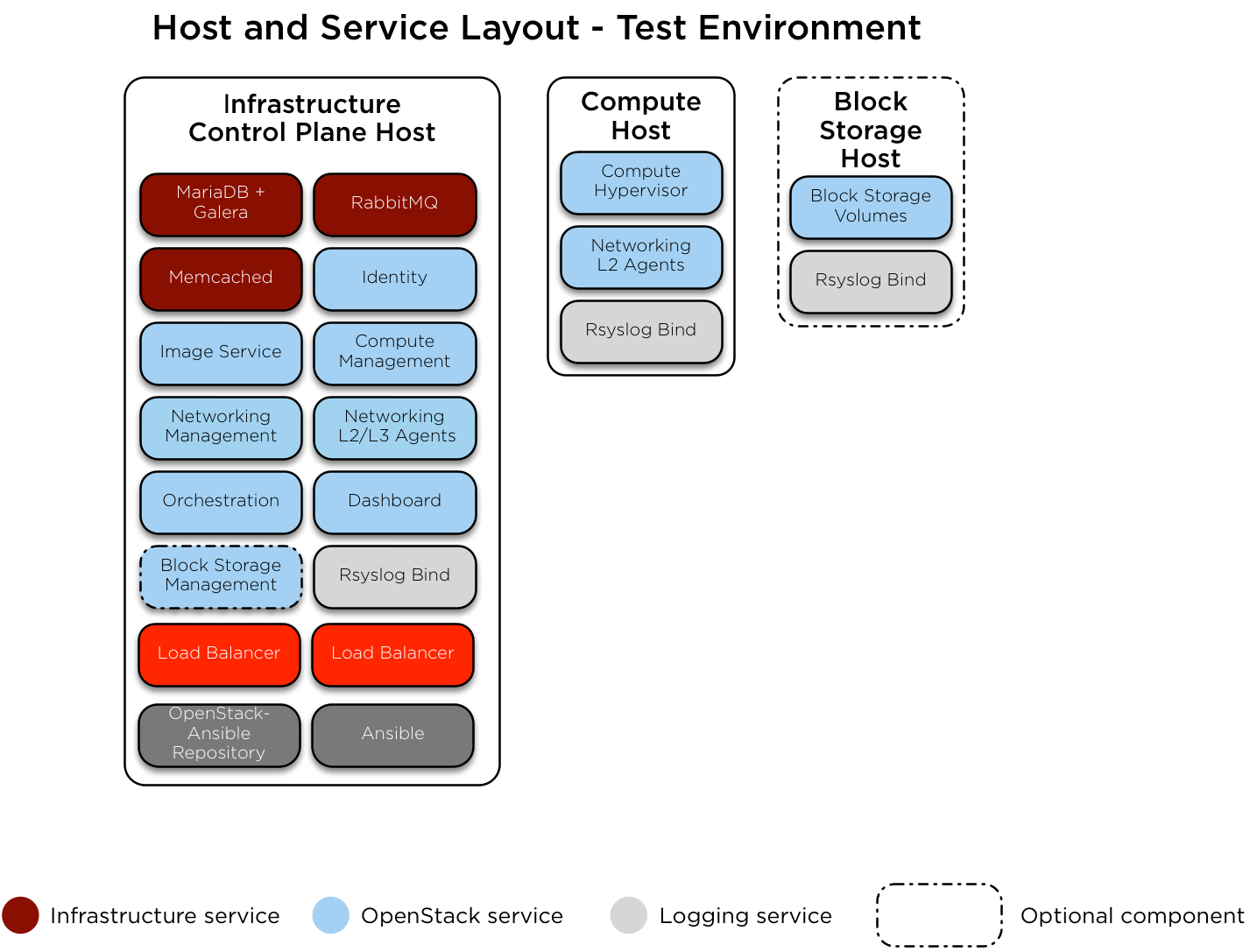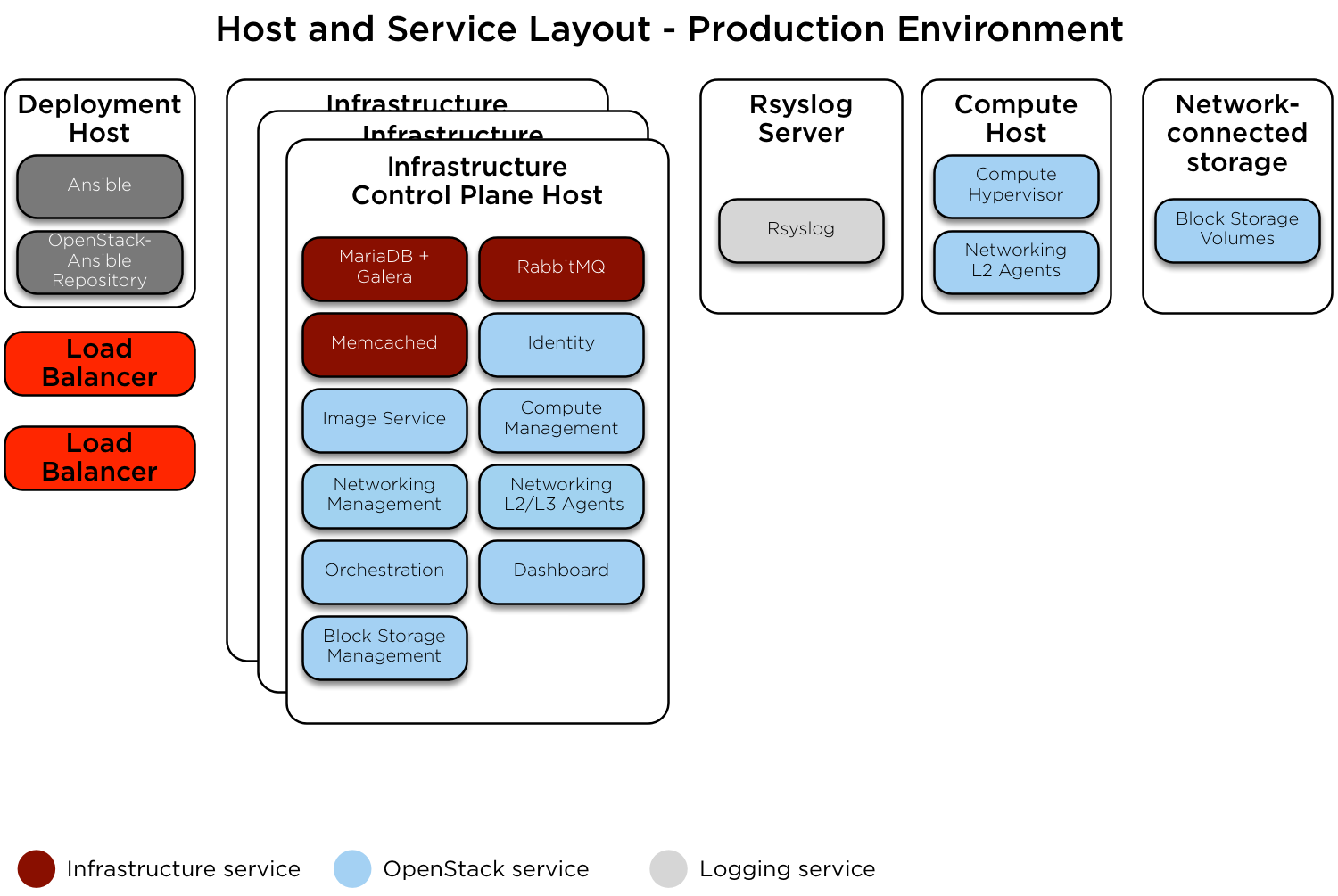This patch removes the old install guide. It is still accessible in the Mitaka section. Change-Id: I47ce62523edd14a1bb20deba3f40e1e0b2df223c Implements: blueprint osa-install-guide-overhaul
2.6 KiB
Host layout
Infrastructure:
- Galera
- RabbitMQ
- Memcached
- Repository
(Optional) Load Balancer hosts:
HAProxy
Note
Use at least one load balancer to manage the traffic among the target hosts. You can use any type of load balancer such as a hardware appliance or software like HAProxy. We recommend using physical load balancers for a production environment.
Log aggregation host:
- Rsyslog
OpenStack API services:
- Identity (keystone)
- Image service (glance)
- Compute management (nova)
- Networking (neutron)
- Orchestration (heat)
- Dashboard (horizon)
Compute hosts:
- Compute virtualization (
nova-compute) - Networking agent (
neutron-agent)
- Compute virtualization (
(Optional) Storage hosts:
- Block Storage scheduler (
cinder-scheduler) - Block Storage volumes (
cinder-volume)
Note
If the optional Block Storage (cinder) service is used, we recommend using an additional host. Block Storage hosts require an LVM volume group named
cinder-volumes. See the section called "Installation requirements" and the section called "Configuring LVM" for more information.- Block Storage scheduler (
Test environment
The test environment is a minimal set of components to deploy a working OpenStack-Ansible environment. It consists of three hosts in total:
- One control plane and infrastructure host
- One compute host
- One storage host
It contains the following features:
- One Network Interface Card (NIC) for each target host
- No log aggregation host
- File-backed storage for glance and nova
- LVM-backed cinder
Production environment
The production environment is a more complicated set of components to deploy a working OpenStack-Ansible environment. The layout for a production environment involves seven target hosts in total:
- Three control plane and infrastructure hosts
- Two compute hosts
- One storage host
- One log aggregation host
It contains the following features:
- Bonded NICs
- NFS/Ceph-backed storage for nova, glance, and cinder
All hosts need at least one networking interface, but we recommend multiple bonded interfaces.
For more information on physical, logical, and virtual network
interfaces within hosts see network-architecture.

